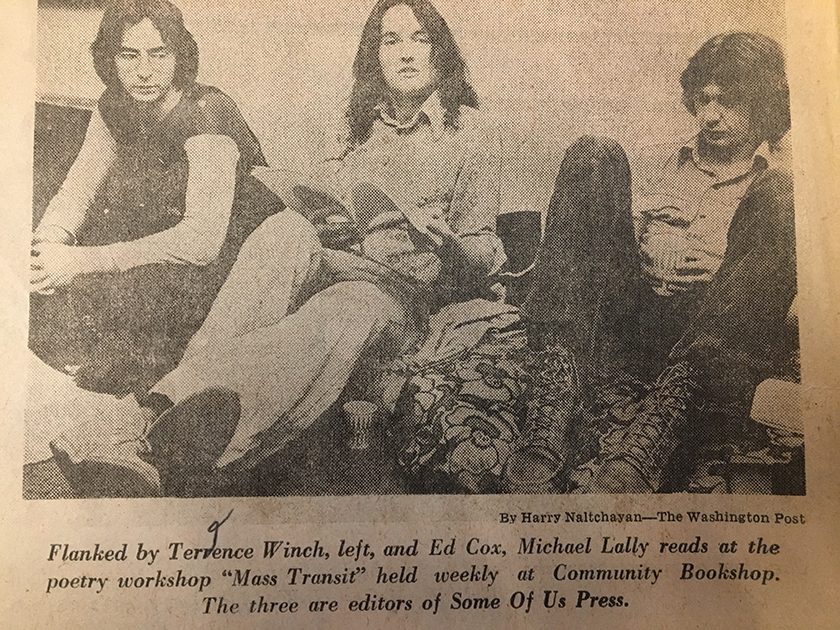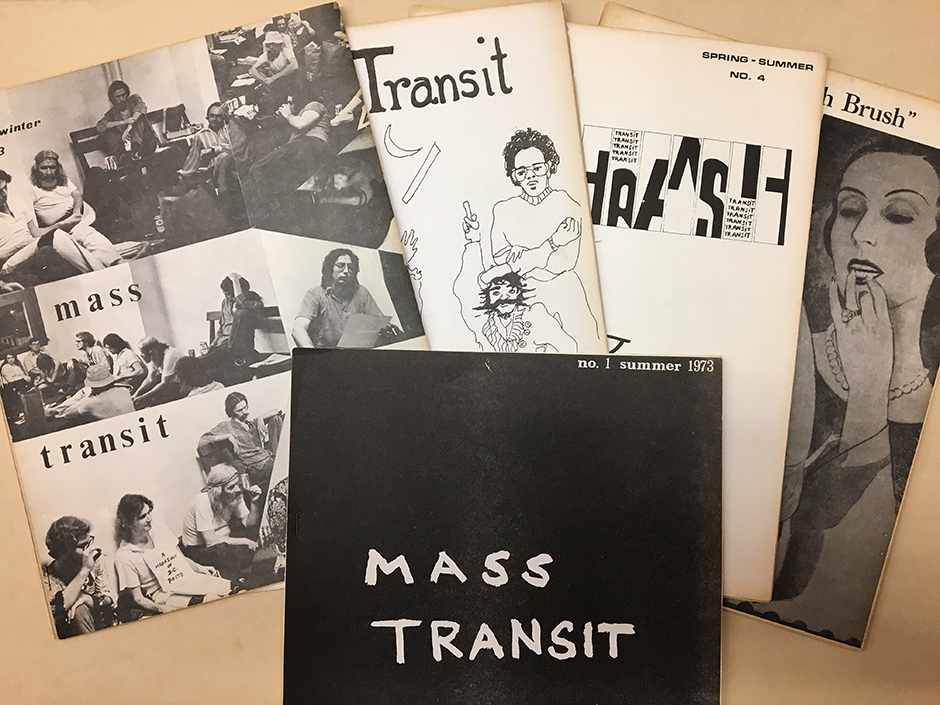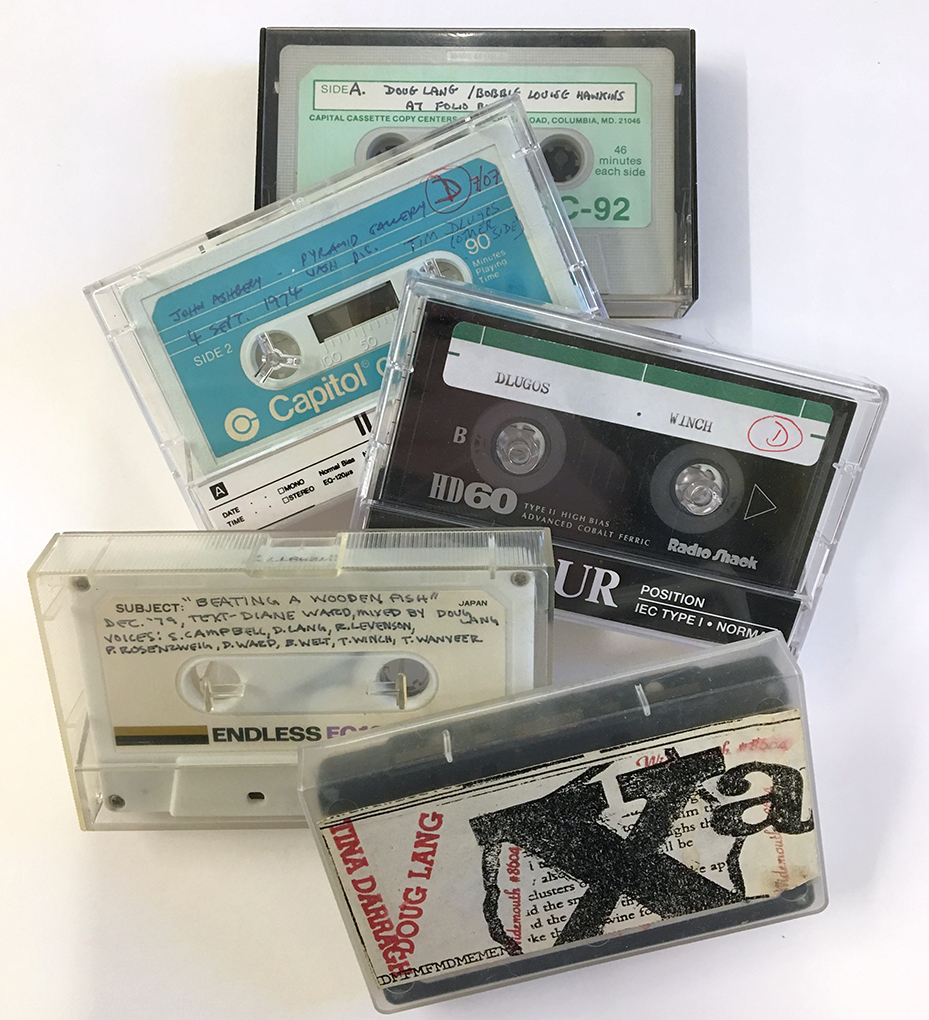Offbeat, Irreverent, and DIY: The Poetry of Mass Transit

For many of us, the political protest, music, and fashion of the 1960s and 1970s are the most recognizable aspects of the countercultural revolution. Yet the literature of the era also provides a window into that movement’s values, struggles, and the society it was trying to create.
As novelist, poet, and Boston College professor of English Suzanne Matson has remarked: “Literary movements are not just made up of their texts, but their personalities, events, social dynamics, and behind-the-scenes discussions of goals and motives.” Recent acquisitions by Burns Library preserve and bring to light the activities and writings of a group of poets in the Dupont Circle neighborhood of Washington, D.C. who began meeting over the Community Book Shop in the early 1970s. They would eventually become known as “Mass Transit” or the “Dupont Circle School.”
The group included Terence Winch, an Irish American musician and writer, whose papers were acquired in 2017, as well as Ed Cox, Michael Lally, Tim Dlugos, Tina Darragh, and Doug Lang, a Welsh immigrant whose papers were acquired earlier this year. Together they created a magazine, also titled Mass Transit, with a rotating editorship. Among the early contributors to Mass Transit was the future actress Karen Allen, of Indiana Jones fame, who befriended Terence Winch and others in the circle when she attended readings as an aspiring writer.

Mass Transit was reflective of the wider counterculture sensibilities of the 1970s, but also had its own distinctive style. Flyers advertising readings and other events clearly show the personality and aesthetic of the group: they were offbeat, irreverent, and DIY. The group attracted a diverse and politically-aware membership, engaging in conversations about civil rights, gay rights, gender equality, and activism.

After the Community Book Shop closed in 1974, the Mass Transit poets met for readings and discussion in other locations in the metro area, including the Pyramid Gallery and Folio Books. Several members of the circle started up their own presses: Some of Us Press, O Press, and Jawbone.

As the 1980s wore on, the group gradually dispersed as venues closed, members moved away, and interests shifted. But many of the poets associated with Mass Transit remained close friends and collaborators, producing new projects together and supporting each others’ work. In the late 1980s, some of the former members of the circle reunited for a reading, and many have since carried on extensive writing careers.
Matson commented further: “Collections of personal papers and ephemera, like Burns Library’s DC poetry/Mass Transit collection, put in the hands of students and researchers the ephemeral evidence of a dynamic period in a literary community: Who appeared at events to read their work and where were the venues? Who were the organizers and correspondents, and what brought them together? The literature gains a social context and a material history from these documents, and we understand it better as a result.”
To learn more about the Mass Transit poets, their values, and their works, visit Burns Library online or in person and request to view the Terence Winch papers, now available for research, and comprehensive collection of Mass Transit publications.